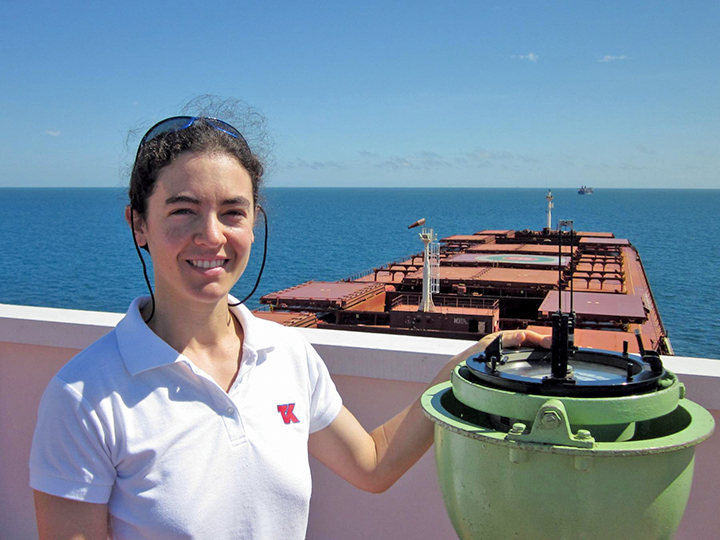- Topics
- Campaigning
- Careers
- Colleges
- Community
- Education and training
- Environment
- Equality
- Federation
- General secretary message
- Government
- Health and safety
- History
- Industrial
- International
- Law
- Members at work
- Nautilus news
- Nautilus partnerships
- Netherlands
- Open days
- Opinion
- Organising
- Podcasts from Nautilus
- Sponsored content
- Switzerland
- Technology
- Ukraine
- United Kingdom
- Welfare

The crew change crisis is getting desperate, writes Nic Gardner. Employers and governments need to wake up to the plight of seafarers stuck at sea or at home
'No man will be a sailor who has contrivance enough to get himself into a jail; for being in a ship is being in a jail, with the chance of being drowned… a man in a jail has more room, better food, and commonly better company': Dr Samuel Johnson, 1759
In this time of Covid-19, millions of people around the world are subject to restrictions on movement and travel. Those under lockdown need essential services to continue: without food and medical equipment, none of us will survive for long. How many of the general public have thought about where their supplies come from?
Most countries don't manufacture or grow everything people need: each country imports the extra supplies from overseas. Ventilators, rice, medicines, face masks, wheat, flour, fruit and vegetables are transported on cargo ships. Cargo ships that are run by merchant seafarers, the unseen and unheard essential workers who are keeping countries alive in lockdown.
A common complaint of people in lockdown is that they are cooped up in a small space, they're not allowed to travel, to do what they want, to visit their friends and family. They forget that that is a completely normal situation for a merchant seafarer.
Merchant seafarers spend at least six months a year, often longer, living and working in the same confined space, unable to go home at night, to hug their family, visit their friends. On most ships, seafarers work at least fourteen hours a day, seven days a week, in a high-risk environment with broken sleep, knowing that any mistake might kill someone, waiting months for the end of the contract so that they can go home.
Because so many borders are closed, flights are disrupted and countries are in lockdown, seafarers all over the world are trapped on their ships. They're forgotten by those ashore who rely on them. Exhausted people who have been onboard their ships, working at least ninety-eight hours a week for over nine months, are forced to continue working as their contracts are extended against their will.
Some ashore see seafarers on ships as the lucky ones: they still have jobs, they're being paid. If you think that, ask yourself how long it will be before the fatigue and stress catches up with them.
You can't see your family for a few weeks, or a few months, but most of you can still get a good night's sleep without being woken up at midnight to work for four or six hours. Even shift workers ashore usually get time off every few days. Seafarers don't, and fatigue is a well-known, well-studied and poorly managed problem.
But, I hear you say, these are unprecedented times and everyone has to make a sacrifice for the common good. Ask yourself how long it will be before the ships you rely on for your supplies stop operating.
Cargo ships are run by merchant seafarers, the unseen and unheard essential workers who are keeping countries alive in lockdown
Tired people make mistakes. Mistakes cause injuries. When a seafarer is injured on board, not only is there no medical care, but right now there's now no-one to replace them. When they're taken hostage by pirates, as is happening right now in West Africa, there's no-one to either help them, rescue them or replace them on their ships.
All it would take would be cooperation and organisation between governments and companies: allow seafarers to travel to a port, quarantine there in an appropriate facility for two weeks, then join the ship.
This would make shipping sustainable and keep essential goods flowing so that countries can survive the necessary lockdowns.
Contrary to Dr Johnson's belief, merchant seafarers are not prisoners, and they're most certainly not slaves. They're human beings, with homes, families, and rights. They're essential workers, just as much as our medical workers and supermarket staff, and they should be treated as such.
- Nic Gardner is a British/Australian master who at time of writing was holed up in England waiting a return to New Zealand once lockdown is lifted. Nic is a Nautilus Champion, and blogs about life at sea and life in general. Her Merchant Navy FAQ is a must-read. Her book The Merchant Navy Survival Guide will be reviewed in an upcoming edition of the Nautilus Telegraph.
Tags
More articles
Navigating the crew change crisis – how uncertainty at work can be a threat to seafarer wellbeing
Quarantined Nautilus members run 200 miles around their rooms for charity
Two Nautilus members under mandatory quarantine used their time waiting to join their next ship by fundraising – completing 200 miles in 10 days – all in just the small space of their hotel bedrooms.
Seafarers 'to stop working' amid pandemic crew change delays
Merchant navy seafarers stranded at sea for months due to coronavirus-related travel restrictions could now start refusing to extend their contracts and stop working, potentially disrupting global trade, the International Transport Workers' Federation (ITF) said.
Unions call for immediate repatriation of US mariners
The Masters, Mates & Pilots union (MM&P) has joined forces with five other US maritime unions, to call on the US government to urgently enable crew changes for American mariners, likening their confinement due to Covid-19 restrictions to 'prison ships'.
